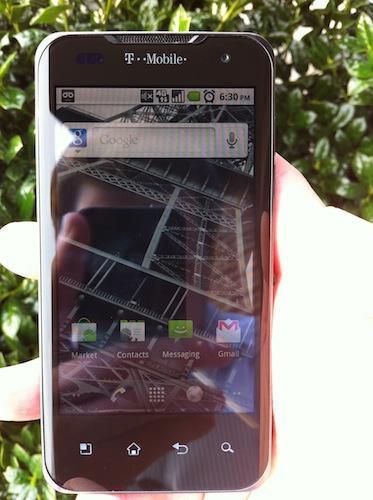
Move over iPhone 5: the T-Mobile G2x may be the best high-end device available in the US. As the first carrier to enter the Android scene, T-Mobile has done a good job with maintaining a diverse lineup of high-end Android devices, and the G2x, made by LG, is no exception. Throw out the preconceived notions of the Korean manufacturer when it comes to high-end smartphones, because the G2x is a solid piece of hardware with a killer feature set. Thanks to a 1 GHz NVIDIA dual-core processor and a clean build of Android 2.2, the phone pummels anything put in its way, but it's one of many high-end Android devices to come this year. Is it the one to buy?
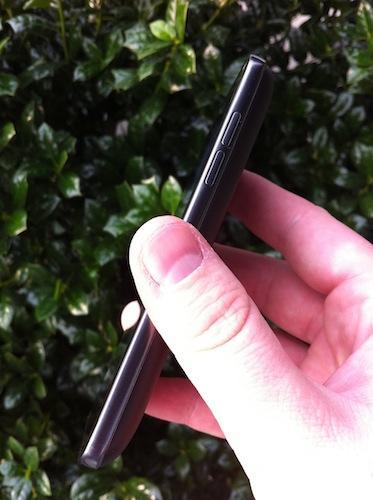
G2x has a 4-inch WVGA display that offers 400 x 800 pixels, and while it's not a high-resolution Super AMOLED Plus or Retina Display, picture quality is decent. I've often said that 4-inches is the sweet spot between "too small" 3.7-inch displays and "too big" 4.3-inch screens. The G2x is easy to hold in the hand, yet provides enough screen real estate that someone with large thumbs can type with ease. On the right side of the phone, you'll find the volume rocker; on the bottom, the microUSB charging port; and on the top, a 3.5mm headphone jack, HDMI port, and power button.
In the box, you get an AC adapter, USB cable, and instruction manuals. Weighing in at five ounces, the G2x has an industrial design, with grey color hues and a metal strip extending from the camera to the bottom of the battery cover. The camera extends out ever-so-slightly, and gives it a DROID X feel. Overall, it's one of the lighter high-end smartphones on the market, and is easy to slip into a tight pocket or purse.
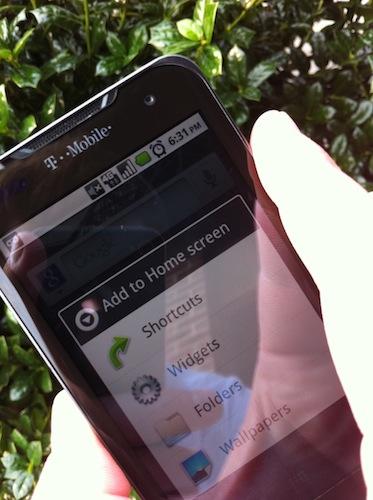
The G2x ships with a 1 GHz NVIDIA Tegra 2 dual-core processor, and combined with the vanilla version of Android 2.2 it offers (more on that shortly), the phone is unusually fast. I was blown away with how responsive the phone was, and more importantly, how consistent it was. Gone is the occasional lag that plagues most Android devices. The menu opens up in a split second. Pictures and videos launch with ease.
Despite the speed, I have had the issue where the phone reboots itself. It only happened twice throughout my testing, but was enough to make me concerned. I haven't had the screen light leakage that others have complained about.
Like the G1 and G2, the G2x comes with a near-stock build of Android 2.2, which works hand-in-hand with the processor and contributes to the overall speed of the unit. Save for some T-Mobile apps like My Account and Device Help and a few minor modifications, it's the full-blown, original Android 2.2. Considering Android 2.3 has been out for some time, I found it shocking that it wasn't installed out of the box, but LG has taken to Twitter in recent weeks and promised a quick upgrade. Those that just can't wait can find it on the web, though it requires a rooted device.*
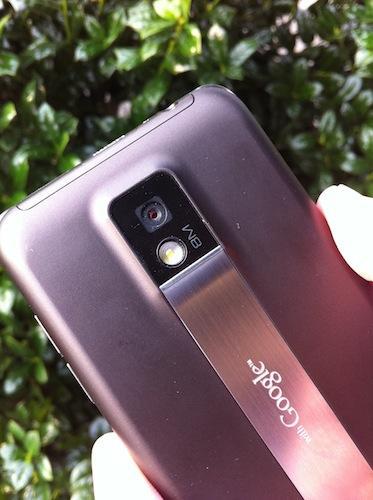
G2x has an 8-megapixel rear-facing camera that's capable of shooting 1080p HD video, along with a 1.3-megapixel front-facing camera. The 8-megapixel camera takes decent photos, though I found them to be slightly lower quality than HTC devices like the EVO 4G, Inspire 4G, and ThunderBolt. Editing options include brightness, focus, scene mode, ISO, white balance, color effect, timer, shot mode, image quality, and more.
The 1080p video quality, on the other hand, was quite good. The image was crisp and clear, and the sound was excellent, despite some wind resistance.
I've tested the G2x in the Charlotte, Orlando, and New York metro areas, and call quality has been consistently good. While I've seen reports of the phone migrating into "no service" from time to time, I haven't had the issue. Throughout my testing, I've taken the G2x to several dead spots, and have been able to make calls, despite the occasional static and cut-outs. Both the earpiece and the speakerphone are loud enough for my unusually feeble ears, and my Plantronics Voyager Pro Plus Bluetooth headset connected without a problem.
The G2x is one of T-Mobile's HSPA+ devices, and data speeds have been pleasant. Throughout testing in the Charlotte area - an HSPA+ market - I've attained download speeds between 2.05 and 4.40 Mbps, with upload speeds between 0.86 and 1.53 Mbps. Data-centric apps loaded with little to no lag, and browsing the web is quick and painless.
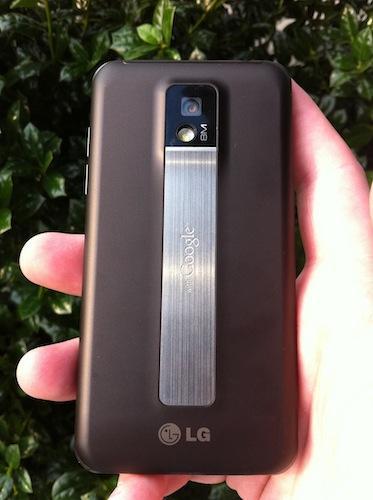
Given the nature of dual-core processors, I had expected the G2x's 1,500 mAh battery to call it quits roughly halfway through the day, but was pleasantly surprised. With moderate use that included calling, text messaging, browsing the web, sending emails, downloading apps, and listening to music, I was able to make it well into the evening before it powered down. It could certainly use improvement and still pales in comparison to the iPhone in the battery life department, but comparing Android to Android, it's pretty impressive. While most users will be able to make it through the day, heavy users should plan to buy a spare battery or car charger.
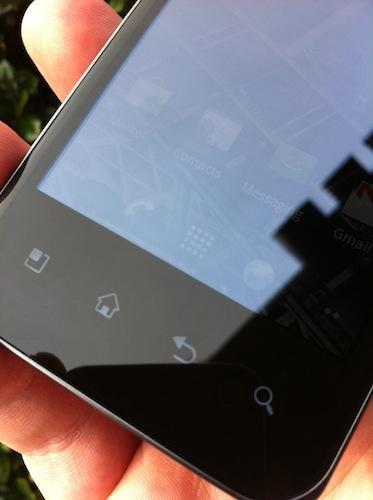
Considering the rate at which new Android devices launch - and what's coming this summer - the G2x will be pushed out of the limelight in due time. But for those buying right now, it's the best Android device available from a US carrier. The Tegra 2 chip and clean build of Android make the G2x a speed machine, capable of pushing through anything you throw at it. G2x works so well because it serves two demographics; those interested in a fast, painless experience, and the Android die-hards that prefer a stock build of the OS over the manufacturer-installed user interfaces. Keeping that in mind, T-Mobile has a winner on their hands.
What's Good: 1 GHz dual-core processor and stock build of Android 2.2 makes for a fast device; the 8-megapixel camera shoots 1080p video; 4-inch display is an ideal balance between "too small" and "too large."
What's Bad: The G2x reboots itself from time to time; while battery life is decent, it could be better.
The Verdict: With a snappy 1 GHz dual-core CPU, stock build of Android, and features like 1080p video recording, the G2x is the best Android device available from a US carrier. For now.
*PhoneDog does not in any way endorse rooting or modifying your device. Any modifications are done at your own risk.